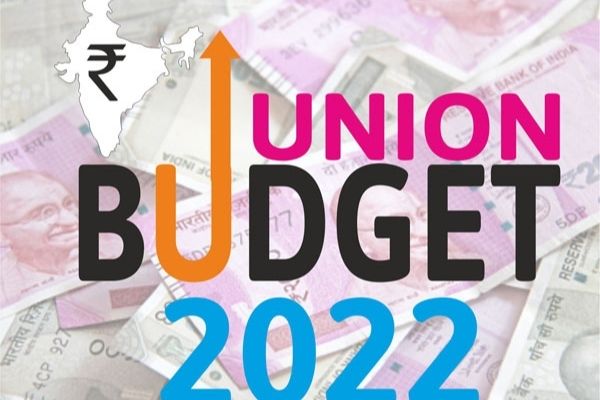The Union Budget 2022 presented by Finance Minister Nirmala Sita announcements made way for digital rupee, and also paved way to the next phase of growth in the digitisation of financial services and payments in India. To understand how the budget and the major announcements will ensure efficiency and bring opportunities fi or Fintech, Elets News Network interacted with leaders. Read the excerpts of the opinion:

Sankalp Mathur, Co-Founder & CRO, NIRO
The steps taken by the Govt. to push financial inclusion and make FinTech more accessible to rural settings highly depends on the availability of infrastructure for the same in these areas. The digital banking units show some promise in this avenue, but in order to actually boost inclusion in these areas a lot more than 75 units would be required. We duly commend the government’s initiative to encourage FinTech consumption. We believe that this financial year is going to be a crucial curve for the payments ecosystem in the country.

Shashank Khade, Co-Founder & Director, Entrust Family Office
This is a Budget that is focused on prioritizing capital expenditure as a key lever for growth, which we endorse as an approach given the multiplier effect of many of these investments. In that sense, the budget augurs well for the economy and the continuing decline in revenue expenditure as a share of total expenditure towards capital expenditure improves quality of expenditure. To put it in context, the 35% increase in capital expenditure, 55% increase in Road sector allocation and 17% increase in railways are significant numbers. On top of this is support to state governments towards capex. Of course, the execution of projects in these areas and in urban infrastructure is key towards enjoying the full benefits of this expenditure. The other point to note is that a larger share of defence capital expenditure is targeted to domestic procurement that could also have second-order implications for R&D and multiplier effects in the economy.
The Budget is extremely future-oriented. Emphasis on digitization of government processes, incentives for startups enabling the flow of capital (lower capital gains for venture investments), clean energy enablers for fundraising and PLI, categorizing data centers and energy storage systems as infrastructure, recognizing gaming as an area of potential, and a general focus on sunrise sectors is evidence of this. The impact of this will be felt over the next decades and not in the short term. The taxation on cryptocurrency while at the same time talking about a digital rupee indicates the government’s recognition of blockchain as an important future technology to enable.
The gross market borrowing through G-secs for 22-23 at Rs 14.95 lakh crs is higher than the amount expected by the market and has led to a sharp increase in G-Sec yields. However, tax buoyancy is very high and could well surprise on the upside thereby leading to a lower fiscal deficit in the current and coming year than forecasted. However what quantum of issuance would be issued as sovereign green bonds and whether it shall be issued to a new set of investors (viz Foreign Institutions) is a key part we can watch out for. Overall, the credibility of numbers is very high as is evident in the tax growth rates and PSU divestment numbers being very moderate. Indicative of intent to under promise and over deliver.

Harsh Bhuta, Partner at Bhuta Shah & Co LLP
The launch of the digital rupee, which is a digital form of Fiat currency backed by blockchain is encouraging, but we will have to wait for the Crypto Bill to see the Government’s stance on other private Cryptocurrencies. The Budget, on the other hand, has included a new plan for taxing virtual digital assets such as cryptocurrencies and NFTs. The proposed section 115BBH seeks to specify that where an assessee includes any income from the transfer of any virtual digital asset, the income tax shall be 30% after deducting the cost of the acquisition of such asset. No other deduction in respect of any expenditure or allowance or set-off of any loss shall be allowed while computing income from the transfer of such asset. Further, no set-off of any loss arising from the transfer of virtual digital assets shall be allowed against any income for the current year, and such loss shall not be allowed to be carried forward to subsequent assessment years.
Further, TDS u/s 194S is provided for at1% on payment for the transfer of virtual digital assets to a resident > Rs 50,000 with certain conditions.

Kumar Abhishek, Founder and CEO, ToneTag
The budget is in line with the convictions and ambitions of the government to push digital inclusion to the remotest parts of the country.The proposal to set up 75 digital banking units through scheduled commercial banks and connecting post offices to core banking is a step in the right direction and will prove to be a vital probing point for digital reception and acceptance.The allotment of capital for research and development for start-ups and exemption on various tax fronts will provide a much-needed leeway for start-ups to focus more on innovation and product development. It also opens up avenues for start-ups to diversify and expand into new territories.
This advancement in innovation coupled with the massive boost in digital infrastructure will not only reinvigorate the existing digital ecosystem but also provide an easy path for start-ups, especially Fintech firms, to penetrate deeper into the country.

Anurag Garg, Founder and CEO, Nivesh.com
To me it is a very impactful budget, benefits of which will be realized in coming years. In investing, we promote long-term over short-term. I feel this budget is also focused on the long-term future of the economy rather than focusing on short-term populist measures. There has been a strong focus on adoption of digital at all levels, which will go a long way in bringing transparency and efficiency. This includes the initiative of taking e-services to villages and spending on laying optical fibers to all villages for easy and fast internet access. Then the step of introducing a single registration process across the country for land is going to be a major reform. Government is also keen on promoting MSMEs and startups and announced various measures, including extension of tax benefit by one more year. This will boost entrepreneurship and eventual economic growth. January had an all time high GST collection of Rs. 1.4 lakh crore which clearly signals that economic recovery post covid is very much real and this budget will provide more pace to the recovery. No benefits have been provided to the salaried income tax payers, which is likely to disappoint this class.
Elets The Banking and Finance Post Magazine has carved out a niche for itself in the crowded market with exclusive & unique content. Get in-depth insights on trend-setting innovations & transformation in the BFSI sector. Best offers for Print + Digital issues! Subscribe here➔ www.eletsonline.com/subscription/






















